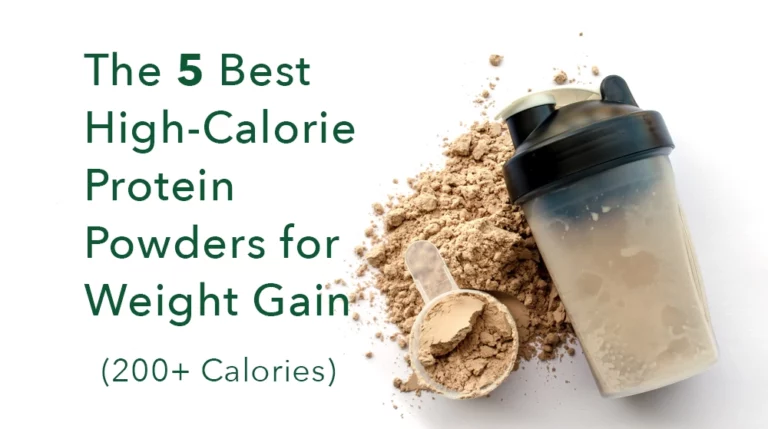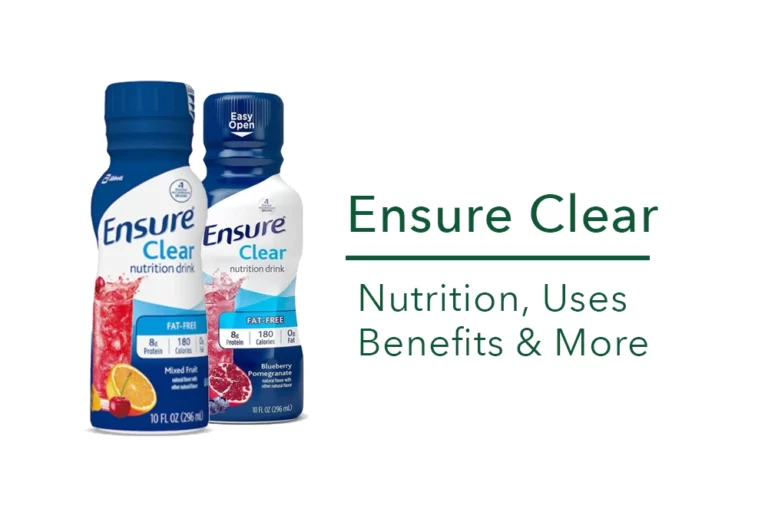Does Protein Make You Gain Weight?
Protein can help you lose weight or gain weight.
However, whether it helps you do one or the other depends on whether increasing the protein in your diet causes you to consume more or fewer calories than your body needs.
This article discusses ways that protein can make you gain or lose weight, depending on your goal.

What is protein?
Protein is one of the three macronutrients you need in large amounts to function optionally — the other two are carbohydrates and fats.
Protein is made up of building blocks, known as amino acids.
There are hundreds of amino acids that exist in nature, but just 20 make up the proteins found in humans (1).
These amino acids form proteins of different lengths and carry out a variety of important bodily functions.
The main functions of protein include (1):
- growth and maintenance of tissues
- transports and stores nutrients
- supports immune health
- maintains fluid balance
- provides structure to skin, hairs, nails, tendons, and ligaments
- needed to make enzymes and hormones
In addition to these functions, protein also supplies energy, with each gram providing 4 calories.
Sources of protein
Protein is a component of both animals and plants.
Animal-based proteins include:
- dairy products (except butter, sour cream, and cream cheese)
- poultry and eggs
- seafood
- meats
Plant-based proteins include:
- grains
- beans
- peas
- nuts and seeds
Most animal-based proteins tend to be more easily digested and absorbed than plant-based proteins since they contain all the amino acids that the body needs in the appropriate amounts (2).
Both animal- and plant-based protein sources can be processed and concentrated to produce protein powders.
Whey and casein — the two primary milk proteins — are the most common types of protein powders but plant-based protein powders made from peas, soy, rice, and wheat are also available.
Most people can meet their protein needs through food alone but protein powders can be a convenient and cost-effective way to boost protein intake and help you meet weight gain or weight loss goals.
Does protein make you gain weight?
Like most topics of nutrition, there isn’t a simple yes or no answer.
The same is true for the question of whether protein makes you gain weight.
If increasing the amount of protein in your diet causes you to consume more calories than your body needs, it will make you gain weight.
But if increasing the amount of protein in your diet causes you to consume fewer calories than your body needs, it will make you lose weight.
Here are some ways that can protein can either make you gain weight or lose weight:
Ways protein can make you gain weight
Gaining weight can be beneficial for those who are underweight, have experienced unintentional weight loss from a medical condition or procedure, or want to perform better at a sport.
Whatever the reason is, protein — as a source of calories — can help you gain weight.
However, compared with the other macronutrients, protein isn’t the best choice.
This is because protein tends to be satiating or filling and it requires more calories than fats or carbohydrates for the body to process (3).
In other words, it can be more difficult to consume more calories than your body needs to gain weight if most of your calories are from protein since protein tends to decrease appetite and increase the number of calories you burn.
Protein also contains more than half the calories per gram of fat, so you would have to consume much more protein than you would fat to get the same number of calories.
However, this doesn’t mean that you should avoid or even limit protein from your diet if you’re trying to gain weight, especially since it has many vital bodily roles, supports muscle repair and rebuilding, and provides other benefits related to blood sugar and blood pressure control (4, 5, 6).
Instead, aim to consume more protein-rich foods that also contain a good amount of carbohydrates or fats, such as plant-based proteins, fattier cuts of meats, full-fat dairy products, and whole eggs.
While a concentrated source of protein, some protein powders can also be useful for gaining weight, especially if you mix the powder with whole-fat milk.
Protein powder is also great to add to shakes and smoothies or for making high-calorie bars for weight gain.
Ways protein can make you lose weight
Protein is more beneficial for losing weight than gaining weight.
This is because protein offers three primary benefits for weight loss (3):
- it decreases appetite and promotes fullness
- it increases the number of calories you burn
- it prevents muscle loss with weight loss
These reasons are why high-protein diets are effective for weight loss and weight loss maintenance (7).
Of course, you still must consume fewer calories than your body needs to lose weight but increasing the protein in your diet makes it easier to do this.
A high-protein diet is generally considered a diet that contains more than the current recommended dietary allowance (RDA) of 0.36 grams per pound (0.8 grams per kilogram) of body weight per day.
However, a high-protein diet that provides about 0.6 to 0.75 grams of protein per pound (1.2 to 1.6 grams per kilogram) of body weight is generally recommended for weight loss (8).
Protein-rich foods that are low in calories are the best for weight loss.
Examples include:
- low-fat milk
- low-fat Greek yogurt and cottage cheese
- skinless white meat poultry
- white-fleshed fish
- beans, peas, and lentils
- lean cuts of beef, such as loins and rounds
Many protein powders contain fewer than 200 calories per serving and are great for weight loss.
Frequently asked questions
Consistently consuming more calories from protein — or any other macronutrient — than your body needs will cause you to gain weight regardless of whether you work out. However, it can be easier to gain weight — mostly as fat — if you don’t exercise since you’re burning fewer calories.
Whey protein is a milk-based protein that can help you increase your calories and gain weight. However, many whey protein supplements tend to be relatively low in calories so it’s best to mix the powder with full-fat milk or blend in a smoothie with high-calorie foods.
Protein alone does not make you gain muscle. Resistance training or weight lifting is the primary driver of muscle building, but protein helps support the recovery and rebuilding processes.
Plant-based proteins such as beans, nuts, seeds, grains, and peas can help you gain weight if you eat enough of them. Plant-based protein powders can also help you gain weight but many are low in calories so it’s best to mix them with a milk alternative or blend in a smoothie with other ingredients for extra calories.
Protein powders are concentrated sources of protein that unlike mass gainers are relatively low in calories. However, you can boost their calorie content by mixing them with milk or a milk alternative or blending them with foods such as peanut butter, oats, fruit, and yogurt to make a high-calorie shake or smoothie.
Protein powders are generally good for two years after their manufactured date, which is usually stamped around the bottom of the package. Some manufacturers do list an expiration date, but the expiration or best-by date is an indicator of quality, not safety. Therefore, it may be safe to consume protein powder past the expiration date if it’s been stored properly.
The bottom line
Protein is a macronutrient that supports various vital bodily functions.
It’s present in a variety of foods as well as supplements like protein powders.
Protein can help you gain weight since it provides calories but it’s more effective for weight loss since it suppresses appetite, increases metabolism, and prevents muscle loss.






